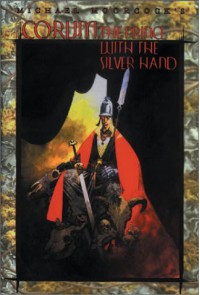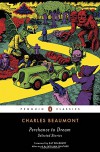Randolph "Dilda" Carter
A rant about books, horror, and the weird. I sometimes take on my love/hate relationship with goodreads and Amazon.
The Prince with the Silver Ending

The saga of Corum by Michael Moorcock, covering six novels, is perhaps the most satisfying of the Eternal Champion tales. It has a distinct beginning, middle, and end. It is the most cohesive and elegant of the Eternal Champion stories. This volume is the final three "books" of Corum and happen some 80 years after the first three volumes in the saga.
While Corum is not my favorite Eternal Champion incarnation, these three novels are perhaps my favorite collection in Eternal Champion arc. It is in many ways more profound and somewhat scarier, with the only hinted gigantic idiot demons the Fhoi Myore ruling much of the geography we're concerned with.
We have the usual sword and sorcery mayhem, gore, heroics, dastardly deeds, villains, traitors. There is also a distinct Celtic flare to these stories.
Moorcock manages to infuse a few interesting ideas into what on the surface appears to be pure swashbuckling fantasy. He hints that the Fhoi Myore aren't really evil, just screwed up because they got shoved through a crack in time-space of the 15 planes and, through no fault of their own, ended up in a bad place for both them and the good guys of the story. He intimates that in their own place and time they are quite happy and get along fine, maybe aren't even mentally damaged. Their deformities are legion, perhaps due to the transition just as a caged animal is twisted, and Moorcock often has Corum feeling sympathy for them as he sees some of himself, a being caught in the wrong place and the wrong time, in the hideous Fhoi Myore. You see, Corum is the last of the Vadagh race (more like a species) that were all killed by the Mabden (humans like us) who are now the dominant species. Corum is forced to befriend the Mabden both through romantic love and just through survival necessity. He fights for the people that killed his race, because he once loved a Mabden woman and because there ain't nobody else around to party with. Corum, being immortal, is pragmatic.
There is also an underlying theme of destiny/fate versus free will, cause and chance. The Fhoi Myore were not born evil, unlike Tolkien's Orcs, somehow genetically programmed to be evil, but became mentally and physically deformed by passing between the planes of reality. If they were home, they'd be fine.
I'm having a hell of a time writing this as the kitten thinks that the mouse, cursor, keyboard, screen, and desk are strictly here for her amusement.
Where was I? Oh yes, fate. Even Corum's actions and experiences are driven or revealed by prophecy, in the end leaving little doubt that this is the only way it could be. Most people are fooled into thinking this is a conventional epic tragedy when the real tragedy is on a different level. All Corum's actions, thoughts heroic deeds, are foreordained, indeed all the characters', good and evil are. Is this just a clever thing inserted by Moorcock to comment on an author's relationship to his characters and work, or is he trying to say something about the way the universe really is? If so, then good and evil are nonsense in a clockwork or scientifically constrained universe where everything can be traced back to an antecedent cause.
All this in a sword and sorcery yarn? If you're Michael Moorcock, hell yes.








